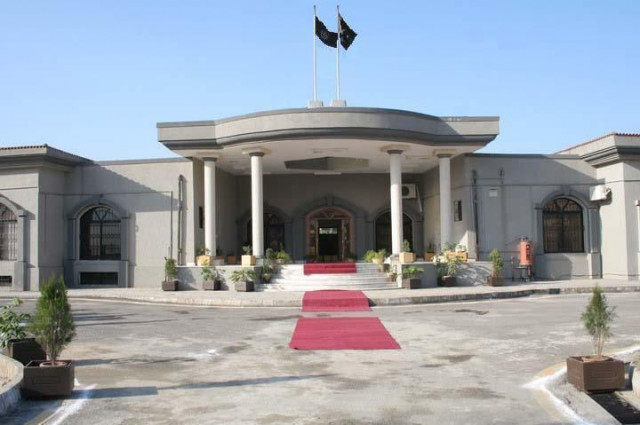Federation used transfers to 'punish' IHC judges
Five justices submit rejoinder in apex court listing a host of complaints against government

Five Islamabad High Court (IHC) judges have told the Supreme Court that the whole process regarding the transfer of three judges from different high courts to the IHC was conducted in undue haste and tainted with mala fides and motivated by the federation's desire to punish serving IHC judges and effectuate a "takeover" of a high court.
The petitioner judges namely Justice Mohsin Akhtar Kayani, Justice Tariq Mehmood Jahangiri, Justice Ijaz Ishaq, Justice Saman Riffat Imtiaz and Justice Babar Sattar through their counsels — Muneer A Malik and Barrister Salahuddin Ahmed — submitted their rejoinder in the apex court which is hearing their petition challenging the transfer of three judges from different high courts to IHC.
The rejoinder states that after the petitioners wrote a letter dated 25.3.2024 to the Supreme Judicial Council (SJC) complaining of instances of executive interference in their judicial functions and attempts to intimidate them and conducting secret surveillance against them, it prompted numerous attacks on them (some of which could only originate from government sources).
"Apart from a media trolling campaign against them accusing them of being politically partisan (which was also the narrative promoted on the media by several senior members of the government), a large number of complaints to the Supreme Judicial Council were filed against them for all manner of imaginary offences and alleged misconduct ranging from alleged dual nationality, fake degrees, misuse of authority to obtain official housing," they submit.
It is also submitted that the family data of one of the petitioners (including passport details which could only have been leaked by a governmental authority) was released on social media. For one of the other Petitioners, his law degree dating back more than three decades was suddenly cancelled by a government university and an FIA enquiry was initiated, says rejoinder.
It further states that on one occasion, no less than four different government agencies (namely the PTA, PEMRA, FIA and IB) moved identical applications for the recusal of one of the Petitioners claiming he was biased against intelligence agencies.
"Clearly, the Six Judges Letter gave rise to great animus against the Petitioners on part of many senior government functionaries" "In this context, it is meaningful that the Federation initiated the process of transfers immediately after the erstwhile Chief Justice of the Islamabad High Court, Justice Amer Farooq, was proposed for appointment to the apex Court. And the haste with which they acted, thereafter, is also meaningful."
It is stated that the entire process from floating of summary for initiation of transfer process, to approvals from the prime minister and the President, to seeking consent of the judges proposed to be transferred as well as the four Chief Justices concerned, floating the final summary for effecting transfer, obtaining approval from Prime Minister and President, and issuance of transfer notification was all completed within 4 days for two learned judges and 2 days for the third learned judge. This unprecedented haste speaks volumes about the motivation of the federation," it adds.
It is also stated that the federation, even in its first summary seeking to initiate the transfer process, had already decided that at least one such judge would be selected for transfer who, if given seniority from the date of his oath in his parent court, would outrank all of the Petitioners in seniority. This selection is also noteworthy given that the only justification for the transfers is underrepresentation of certain provinces but, for the other two provinces, relatively junior judges were selected."
"However, the petitioners do not wish to raise any personal grievance about the manner in which they have been treated nor do they raise an issue simply relating to their personal seniority. What is more important is that the unprecedented manner in which the functioning of a High Court can be impacted by the Federation by using its powers of transfer in a mala fide manner."





















COMMENTS (1)
Comments are moderated and generally will be posted if they are on-topic and not abusive.
For more information, please see our Comments FAQ